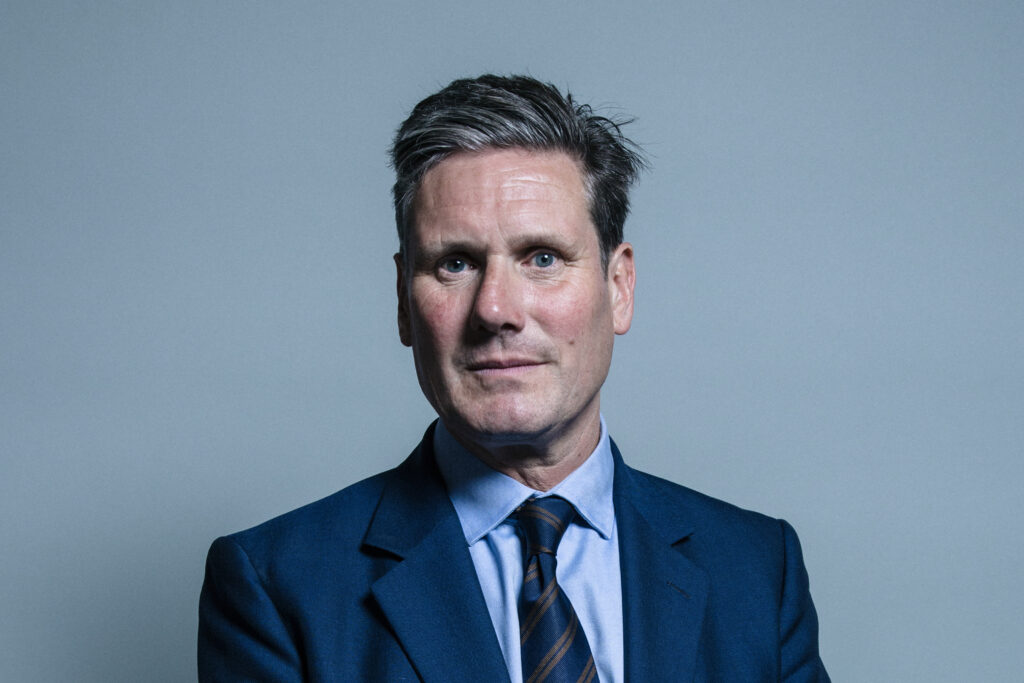REACTION: Care sector has its say as Labour delivers crushing defeat to Tories

The Labour Party has won its biggest ever majority in the 2024 General Election, with the Tories also suffering a record defeat.
What this means for the care sector will become apparent over the coming months and years.
Here, read the reactions of some of the most influential figures in the sector.
Martin Green, chief executive of Care England, said: “With a new government comes a fresh start, and the opportunity for a new narrative around adult social care. Care England welcomes Sir Keir Starmer to his role as Prime Minister and wishes him every success in bringing about the sustainable future for our sector that we all so desperately want to see.

“Our adult social care system is a vital part of our national infrastructure. It supports people to confidently and independently to live the lives they choose and plays a key role in supporting our health system and wider economy. After the failure of successive governments to ‘fix social care once and for all’, the new administration must invest in and reform our sector as an urgent priority.
“There are practical measures the new government must implement within its first 100 days to secure a sustainable future for our sector. Care England would urge them to lose no time and stands ready to continue our role as a critical friend to [the] government.”
James Townsend, co-founder and CEO of Mobilise, a digital community of carers, said: “If there’s any group that needs this new government to bring about change, it’s unpaid carers. There are 10 million unpaid carers in the UK. An additional 19 million people don’t identify as carers, but dedicate themselves to looking after family members, friends, and neighbours nonetheless. Despite their number, this group has long been overlooked and undervalued. It’s remarkable that this is the case, given the role which unpaid carers play in supporting the social care system and NHS, and given how highly these issues rank in the political agenda by comparison.
“Labour now has a chance to show unpaid carers the care and support they deserve in return. I’ve seen first-hand the difference that peer community groups, expert advice, and information about – as well as investment in – benefits can make to unpaid carers. None of us should have to navigate the realities of looking after our loved ones alone.”

Sam Monaghan, chief executive of care provider MHA, said: “We extend our congratulations to Keir Starmer and the Labour Party and look forward to working with the new government to realise our ambitions for the social care sector.
“This is a crucial time for everyone working in social care, with 152,000 staff vacancies and half a million people waiting for a care assessment. There’s also a £2.9 billion chasm between the funding that’s currently available from central government and the cost of delivering care. Within its manifesto, Labour’s National Care Service and fair pay deal were encouraging signs that the party recognises the challenges we face, as were its plans to tie workforce planning, skills and immigration together.
“Funding is at the heart of these issues, however, and the sector can’t afford to wait for change. Social care must be a key priority and we hope the new government can immediately begin to deliver on its commitment to long term funding reform. We will help and advise in any way we can to ensure that this happens.”
Kathryn Smith, chief executive of the Social Care Institute for Excellence (SCIE), said: “The scale and diversity of social care and support is immense with the value of our sector being underscored during the COVID-19 pandemic. This value must now be recognised in action. More people are requesting support, but fewer are getting the help they need. With demand increasing, local authorities do not have the money to meet it and staff numbers are not keeping pace.
“We need to empower people with choice, control and independence to lead fulfilling lives. This is what we want for ourselves, our families and loved ones. But we know this does not happen everywhere.
“The last Labour Prime Minister recognised that there was ‘no easy solution’ to social care’s problems. We hope that the incoming government will grasp the nettle and put social care reform at the heart of their ambition. The sector has worked hard to come together, with consensus emerging around ideas that will change lives for the better and build strong local communities.
“A social care system fit for the 21st century is in the national interest and the formidable challenges facing the social care sector cannot be a justification for inaction. The cornerstone of future policy change ought to be co-producing solutions with people with lived experience, their families and carers, as well as care providers. Only an inclusive, collaborative approach will improve the efficacy and sustainability of any policy change.”
Janine Tregelles, CEO of Revitalise, said: “At Revitalise, we extend our congratulations to the new Prime Minister. Our task for Sir Keir Starmer and his party is to take immediate action on adult social care reform – in particular, to ensure that vital respite is properly funded, and that respite funding receives specific protection so that it cannot be withdrawn from those who need it.
“After years of austerity, the pandemic and the cost-of-living crisis, the government has turned respite care into a luxury – our ongoing ‘Give me a Break’ campaign highlighting that of the 4.7 million unpaid carers in England, only one in 129 receive respite funding. Disabled people and their carers have long since been abandoned by politicians and policy-makers and are at breaking point. It is high time our new government puts social care at the top of the agenda.”

Jayne Connery, founder of Care Campaign for the Vulnerable (CCFTV), said: “The challenges facing social care are profound. Chronic underfunding has led to severe staff shortages, inadequate pay, and a lack of essential resources, all of which undermine the quality of care provided. Our social care workforce is overworked and undervalued, with many carers struggling to make ends meet. This is unacceptable. We urge the Labour government to take immediate steps to ensure fair wages, better working conditions and adequate support for care staff.
“One of the most pressing issues is the need for a sustainable funding model for social care. The current system is fragmented and inadequate, leading to disparities in care quality across different regions. We advocate for a national care service that is publicly funded and universally accessible, ensuring that everyone receives the care they need, regardless of their financial situation. This requires substantial investment, but it is an investment in our humanity and our collective future.
“In addition to funding and workforce issues, there must be a concerted effort to integrate health and social care services. The separation of these services often leads to disjointed care and increased pressure on the NHS. A cohesive, integrated approach will not only improve care outcomes but also enhance efficiency and reduce overall costs.
“Lastly, we must focus on the dignity and rights of those receiving care. The voices of the vulnerable and their families must be at the heart of any reforms. We urge the new government to engage with care recipients, carers and advocacy groups to ensure that policies are shaped by those with lived experience. Empowering individuals and respecting their autonomy should be the cornerstone of our social care system.”

Independent Care Group (ICG) Chair Mike Padgham said: “We congratulate Labour on an historic and impressive victory and know that as the new Government begins today there is no better time to begin vital and long-overdue reform of adult social care.
“We have therefore written to Sir Keir Starmer and to Wes Streeting, who we anticipate will be the new health secretary, inviting them to engage with the social care sector to begin the challenge of transforming the sector and improving people’s lives.”
Elsewhere, Karin Orman, director of practice and innovation at the Royal College of Occupational Therapists, said: “If the new Labour government is serious about addressing the crisis in health and social care, it must prioritise moving more occupational therapists into community settings, such as schools, GP surgeries, and housing teams. This will help people stay in work and be able to do the tasks and activities – or occupations – that they want and need to do to support their wellbeing.
“The Labour Party has said it will commit to ‘shifting resources to primary care and community services’. To do this, they need to prioritise access to occupational therapy in schools to help children and young people reach their potential; reduce pressure on emergency health services by making sure community rehabilitation teams include occupational therapists; and increase the number of occupational therapists in GP surgeries, which would help reduce both hospital admissions and the chances of people’s conditions getting worse.”



